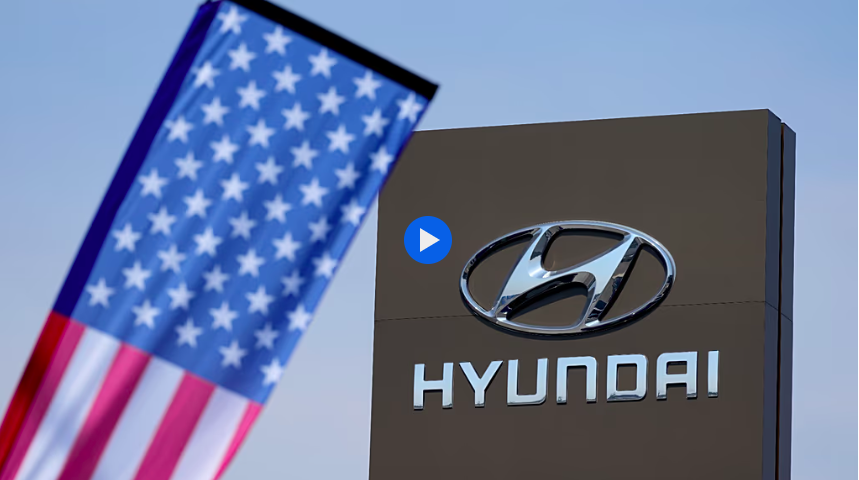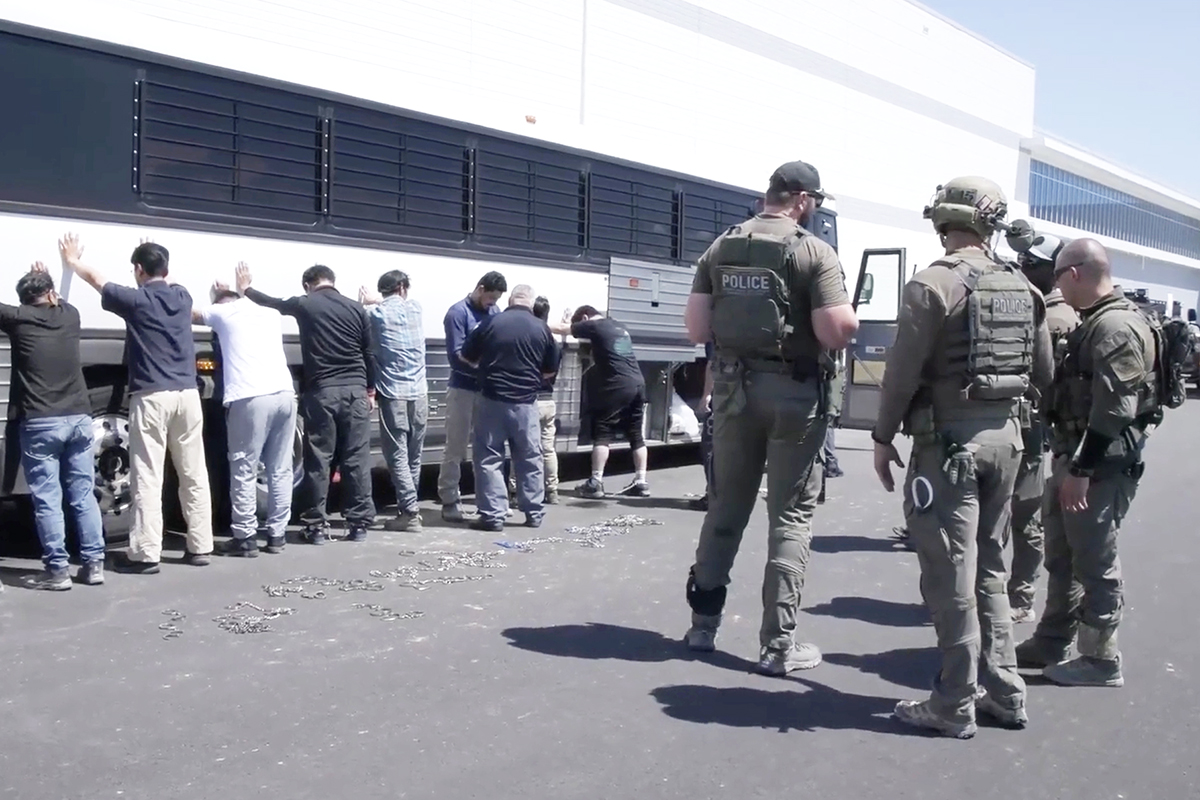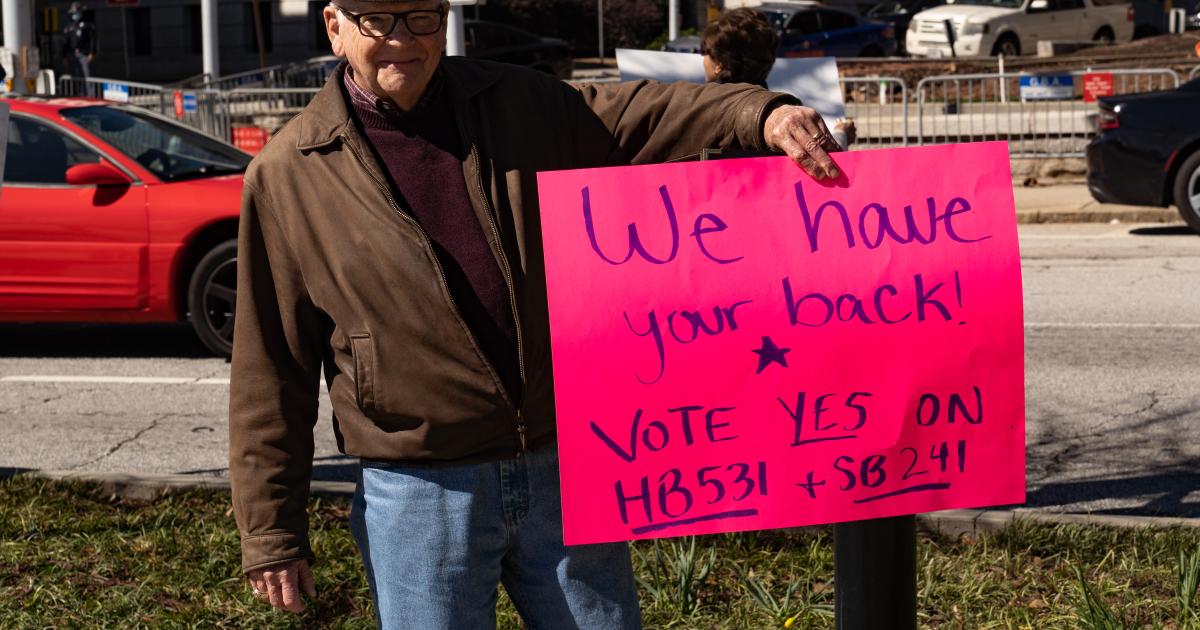Quote from Alex bobby on September 8, 2025, 5:24 AM
South Korean Workers Detained in Georgia US Immigration Raid to Be Released
A major immigration raid at a Hyundai construction site in Georgia that stunned both the United States and South Korea has taken a surprising turn. Following negotiations between Seoul and Washington, the 475 South Korean workers detained during the operation are set to be released and repatriated. The announcement was made by South Korea’s government on Sunday, signalling a resolution to a tense international incident that highlighted the complexities of immigration enforcement, corporate investment, and diplomatic relations.
The Raid at Georgia’s Largest EV Plant
The raid occurred on Thursday at Hyundai Motor Group’s sprawling $7.6 billion electric vehicle (EV) battery plant, currently under construction in Georgia. Officials described the site as the largest and most high-profile manufacturing project in the state’s history, with Governor Brian Kemp previously calling it a “transformative economic development” for Georgia.
Videos posted on social media captured the scene as federal agents conducted the search. Workers, dressed in bright yellow safety vests, were lined up while a man wearing a tactical vest with the letters HSI—Homeland Security Investigations—addressed them.
“We’re Homeland Security. We have a search warrant for the whole site,” he told the workers.
“We need construction to cease immediately. We need all work to end on the site right now.”
The announcement brought construction to a sudden halt at a facility that employs roughly 1,200 people and is central to Hyundai’s ambitious plans to expand EV production in the United States. The raid forced a temporary shutdown and raised immediate concerns about delays to the plant’s production schedule.
The US Perspective: Criminal Investigation
According to US authorities, the raid was part of a long-term criminal investigation into illegal hiring practices at the site. Federal agents described the operation as the largest single-site immigration enforcement action in their history, underscoring the scale of the investigation.
While details of the alleged infractions have not been fully disclosed, officials emphasised that the operation targeted hiring irregularities rather than the broader workforce. Authorities also framed the raid within the Trump administration’s broader crackdown on immigration, which has seen sweeping ICE operations across farms, restaurants, construction sites, and auto repair shops nationwide.
Despite this context, the raid drew immediate attention because it targeted a major economic project involving a close US ally, South Korea, raising both diplomatic and business concerns.
Seoul’s Response: Concern and Diplomacy
The South Korean government responded swiftly to the raid, expressing “concern and regret” over the detentions and the disruption to the workers’ lives. Seoul immediately dispatched diplomats to Georgia to monitor the situation, meet with workers, and liaise with US authorities.
By Sunday, officials in Seoul announced that a deal had been reached, under which all 475 workers would be released and flown home. The move was welcomed by the workers’ families and South Korean observers, but questions remain about the long-term impact on Hyundai’s project and US-Korea relations.
A government spokesperson in Seoul emphasised that while the release is a positive development, the incident highlights the importance of ensuring protections for workers abroad and the need for dialogue in cases where immigration enforcement intersects with international business.
Hyundai’s Investment in Georgia
Hyundai’s EV battery plant represents a cornerstone of the company’s strategy to expand electric vehicle production in the US market. The $7.6 billion facility, which began manufacturing EVs roughly a year ago, is expected to generate thousands of jobs and position Georgia as a hub for sustainable automotive innovation.
Construction workers, many of them South Korean nationals, were essential in ensuring that the complex machinery and production lines meet strict engineering specifications. Any prolonged disruption could have downstream effects on production timelines and the company’s broader EV rollout strategy.
Although Hyundai has not publicly commented in detail on the raid, industry analysts predict that the company will need to reassess labor management practices and ensure compliance with US hiring regulations to prevent future incidents.
Implications for US Immigration Policy
The Georgia raid exemplifies the tensions inherent in the Trump administration’s approach to immigration. ICE and Homeland Security officials have conducted high-profile operations aimed at enforcing immigration laws and deterring illegal employment practices. These actions have included mass arrests, workplace inspections, and the targeting of businesses suspected of violating federal regulations.
While proponents argue that such enforcement is necessary to uphold the law and protect American workers, critics contend that these raids can have unintended consequences, particularly when they involve foreign nationals engaged in legal or semi-legal employment for multinational corporations.
The Hyundai incident is particularly sensitive because it involves a key US ally. The diplomatic fallout could influence future enforcement strategies, especially when raids intersect with significant foreign investments and international labor mobility.
International Relations and Future Outlook
The resolution of the raid—with all detained South Korean workers set to return home—represents a rare diplomatic success in a tense scenario. However, it also serves as a cautionary tale for multinational corporations operating in the United States. Ensuring compliance with immigration and labor laws is crucial, especially when employing foreign nationals on high-profile projects.
For South Korea, the incident highlights the need for proactive monitoring and support of its citizens working abroad. For the US, the raid underscores the complexities of balancing immigration enforcement with economic diplomacy, particularly when actions affect strategic partnerships.
Analysts predict that Hyundai will likely adjust its workforce management strategies in Georgia, possibly increasing reliance on local labor or implementing stricter compliance oversight for foreign employees. Similarly, both US and South Korean authorities may use this case as a model for improved communication and contingency planning in future enforcement operations.
Looking Forward
With the South Korean workers set to return home, attention now turns to the future of Hyundai’s EV battery plant and the broader implications for international labor practices in the US. The company will likely strengthen compliance measures to prevent further disruptions, while governments on both sides may enhance dialogue to protect workers and maintain strong economic ties. Looking forward, this incident could serve as a blueprint for balancing immigration enforcement with the needs of multinational projects, ensuring that critical investments and international partnerships are safeguarded without compromising the rule of law.
Final Thoughts
The Georgia Hyundai raid serves as a stark reminder of the delicate balance between immigration enforcement, corporate investment, and international diplomacy. While the release of the South Korean workers resolves the immediate crisis, it also highlights the complexities multinational companies face when navigating US labor and immigration laws. Going forward, stronger compliance measures, proactive communication between governments, and careful oversight will be essential to prevent similar incidents. Ultimately, this event underscores the need to harmonise economic growth with legal accountability and the protection of workers abroad.
Conclusion
The Georgia Hyundai raid reflects the intersection of immigration enforcement, international business, and diplomacy. While the immediate crisis has been resolved with the release of the 475 South Korean workers, the event raises important questions about workplace oversight, legal compliance, and the impact of sweeping immigration policies on international relations.
As Hyundai continues construction on its EV plant, and as governments on both sides of the Pacific assess the broader implications, this incident will likely remain a reference point in discussions about immigration enforcement, foreign investment, and the balance between law, diplomacy, and economic development.
Meta Description:
Following a massive US immigration raid at Hyundai’s Georgia EV plant, 475 South Korean workers will be released and flown home after diplomatic negotiations, highlighting tensions between enforcement and international business.

South Korean Workers Detained in Georgia US Immigration Raid to Be Released
A major immigration raid at a Hyundai construction site in Georgia that stunned both the United States and South Korea has taken a surprising turn. Following negotiations between Seoul and Washington, the 475 South Korean workers detained during the operation are set to be released and repatriated. The announcement was made by South Korea’s government on Sunday, signalling a resolution to a tense international incident that highlighted the complexities of immigration enforcement, corporate investment, and diplomatic relations.
The Raid at Georgia’s Largest EV Plant
Register for Tekedia Mini-MBA edition 18 (Sep 15 – Dec 6, 2025) today for early bird discounts. Do annual for access to Blucera.com.
Tekedia AI in Business Masterclass opens registrations.
Join Tekedia Capital Syndicate and co-invest in great global startups.
Register for Tekedia AI Lab: From Technical Design to Deployment.
The raid occurred on Thursday at Hyundai Motor Group’s sprawling $7.6 billion electric vehicle (EV) battery plant, currently under construction in Georgia. Officials described the site as the largest and most high-profile manufacturing project in the state’s history, with Governor Brian Kemp previously calling it a “transformative economic development” for Georgia.
Videos posted on social media captured the scene as federal agents conducted the search. Workers, dressed in bright yellow safety vests, were lined up while a man wearing a tactical vest with the letters HSI—Homeland Security Investigations—addressed them.
“We’re Homeland Security. We have a search warrant for the whole site,” he told the workers.
“We need construction to cease immediately. We need all work to end on the site right now.”

The announcement brought construction to a sudden halt at a facility that employs roughly 1,200 people and is central to Hyundai’s ambitious plans to expand EV production in the United States. The raid forced a temporary shutdown and raised immediate concerns about delays to the plant’s production schedule.
The US Perspective: Criminal Investigation
According to US authorities, the raid was part of a long-term criminal investigation into illegal hiring practices at the site. Federal agents described the operation as the largest single-site immigration enforcement action in their history, underscoring the scale of the investigation.

While details of the alleged infractions have not been fully disclosed, officials emphasised that the operation targeted hiring irregularities rather than the broader workforce. Authorities also framed the raid within the Trump administration’s broader crackdown on immigration, which has seen sweeping ICE operations across farms, restaurants, construction sites, and auto repair shops nationwide.
Despite this context, the raid drew immediate attention because it targeted a major economic project involving a close US ally, South Korea, raising both diplomatic and business concerns.
Seoul’s Response: Concern and Diplomacy
The South Korean government responded swiftly to the raid, expressing “concern and regret” over the detentions and the disruption to the workers’ lives. Seoul immediately dispatched diplomats to Georgia to monitor the situation, meet with workers, and liaise with US authorities.
By Sunday, officials in Seoul announced that a deal had been reached, under which all 475 workers would be released and flown home. The move was welcomed by the workers’ families and South Korean observers, but questions remain about the long-term impact on Hyundai’s project and US-Korea relations.
A government spokesperson in Seoul emphasised that while the release is a positive development, the incident highlights the importance of ensuring protections for workers abroad and the need for dialogue in cases where immigration enforcement intersects with international business.
Hyundai’s Investment in Georgia
Hyundai’s EV battery plant represents a cornerstone of the company’s strategy to expand electric vehicle production in the US market. The $7.6 billion facility, which began manufacturing EVs roughly a year ago, is expected to generate thousands of jobs and position Georgia as a hub for sustainable automotive innovation.
Construction workers, many of them South Korean nationals, were essential in ensuring that the complex machinery and production lines meet strict engineering specifications. Any prolonged disruption could have downstream effects on production timelines and the company’s broader EV rollout strategy.
Although Hyundai has not publicly commented in detail on the raid, industry analysts predict that the company will need to reassess labor management practices and ensure compliance with US hiring regulations to prevent future incidents.
Implications for US Immigration Policy
The Georgia raid exemplifies the tensions inherent in the Trump administration’s approach to immigration. ICE and Homeland Security officials have conducted high-profile operations aimed at enforcing immigration laws and deterring illegal employment practices. These actions have included mass arrests, workplace inspections, and the targeting of businesses suspected of violating federal regulations.
While proponents argue that such enforcement is necessary to uphold the law and protect American workers, critics contend that these raids can have unintended consequences, particularly when they involve foreign nationals engaged in legal or semi-legal employment for multinational corporations.
The Hyundai incident is particularly sensitive because it involves a key US ally. The diplomatic fallout could influence future enforcement strategies, especially when raids intersect with significant foreign investments and international labor mobility.
International Relations and Future Outlook
The resolution of the raid—with all detained South Korean workers set to return home—represents a rare diplomatic success in a tense scenario. However, it also serves as a cautionary tale for multinational corporations operating in the United States. Ensuring compliance with immigration and labor laws is crucial, especially when employing foreign nationals on high-profile projects.
For South Korea, the incident highlights the need for proactive monitoring and support of its citizens working abroad. For the US, the raid underscores the complexities of balancing immigration enforcement with economic diplomacy, particularly when actions affect strategic partnerships.
Analysts predict that Hyundai will likely adjust its workforce management strategies in Georgia, possibly increasing reliance on local labor or implementing stricter compliance oversight for foreign employees. Similarly, both US and South Korean authorities may use this case as a model for improved communication and contingency planning in future enforcement operations.
Looking Forward
With the South Korean workers set to return home, attention now turns to the future of Hyundai’s EV battery plant and the broader implications for international labor practices in the US. The company will likely strengthen compliance measures to prevent further disruptions, while governments on both sides may enhance dialogue to protect workers and maintain strong economic ties. Looking forward, this incident could serve as a blueprint for balancing immigration enforcement with the needs of multinational projects, ensuring that critical investments and international partnerships are safeguarded without compromising the rule of law.
Final Thoughts
The Georgia Hyundai raid serves as a stark reminder of the delicate balance between immigration enforcement, corporate investment, and international diplomacy. While the release of the South Korean workers resolves the immediate crisis, it also highlights the complexities multinational companies face when navigating US labor and immigration laws. Going forward, stronger compliance measures, proactive communication between governments, and careful oversight will be essential to prevent similar incidents. Ultimately, this event underscores the need to harmonise economic growth with legal accountability and the protection of workers abroad.
Conclusion
The Georgia Hyundai raid reflects the intersection of immigration enforcement, international business, and diplomacy. While the immediate crisis has been resolved with the release of the 475 South Korean workers, the event raises important questions about workplace oversight, legal compliance, and the impact of sweeping immigration policies on international relations.
As Hyundai continues construction on its EV plant, and as governments on both sides of the Pacific assess the broader implications, this incident will likely remain a reference point in discussions about immigration enforcement, foreign investment, and the balance between law, diplomacy, and economic development.
Meta Description:
Following a massive US immigration raid at Hyundai’s Georgia EV plant, 475 South Korean workers will be released and flown home after diplomatic negotiations, highlighting tensions between enforcement and international business.
Uploaded files:







